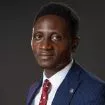INTRODUCTION
Medical negligence relates to the improper, unskilled, or negligent treatment of a patient by a physician, dentist, nurse, pharmacist, or any other health care professional. The principles established in Donoghue v. Stevenson1 provide a guide to understanding what the usual elements to establish a case of medical negligence are. In addition to legal standards that generally indicate when negligence is prima facie established, medical negligence specifically relates to acts that fall short of the professional standards required for medical practice as established by the relevant training, regulatory and adjudicatory authorities.
The Osborne's Concise Law Dictionary (7th Edition)2 defines "negligence" as the omission to do something which a reasonable man guided upon those considerations which ordinarily regulate the conduct of human affairs, would do, or the doing of something which a prudent and reasonable man would not do.3
There appears to be a dearth of judicial or administrative Tribunal decisions where accountability for medical negligence have been well established or where victims have been adequately compensated for losses suffered due to negligent medical services. Accordingly, this article seeks to examine the legal framework for medical practice, liabilities for medical negligence and most importantly, the mandatory expert opinion complexity involved in proving medical negligence in Nigeria.
LEGAL FRAMEWORK FOR MEDICAL PRACTICE IN NIGERIA
Medical practice in Nigeria is regulated by constitutional and statutory provisions. The principal legislation governing medical practice in Nigeria is the Medical and Dental Practitioners Act 2004, and as may be amended from time to time. The Code of Medical Ethics in Nigeria, 2008 also stipulate the rules for professional conduct for medical practice in Nigeria. There is also the Patients' Bill of Rights developed by the Federal Competition and Consumer Protection Commission (FCCPC) in collaboration with the Federal Ministry of Health and other stakeholders within the Nigerian health sector.
The Patients' Bill of Rights was launched in the year 2018. The Bill contains several existing patients' rights hitherto codified in other legislations such as the Constitution of the Federal Republic of Nigeria 1999 (As Amended), the Freedom of Information Act, the Federal Competition and Consumer Protection Commission Act (FCCPA), the Childs Right Act and other legislations.
The Bill may generally not be considered to be on the same hierarchical position with legislations directly enacted by the Legislature in Nigeria neither can it be deemed a subsidiary legislation in the strictest and technical sense of the phrase. Notwithstanding this, the Bill's provisions are binding and enforceable in favour of Nigerian citizens who utilise healthcare services. This is because it codifies, and aggregates already existing statutory rights and obligations contained in various laws in favour of healthcare service consumers in Nigeria. The Bill is thus enforceable against providers of medical/healthcare services, especially if victims seek redress regarding any breach through appropriate complaints to the Federal Competition and Consumer Protection Commission. Under the FCCPA, the FCCPC has regulatory powers to investigate, provide protection and also obtain redress for victims.
The referenced Medical and Dental Practitioners Act identifies certain conducts that amounts to medical negligence in Nigeria, which include the following4:
- Failure to attend promptly to a patient requiring urgent attention when the practitioner was in a position to do so.
- Manifestation of incompetence in the assessment of a patient.
- Making an incorrect diagnosis particularly when the clinical features were so glaring that no reasonable skilful practitioner could have failed to notice them.
- Failure to advise, or proffering wrong advice to, a patient on the risk involved in a particular operation or course of treatment, especially if such an operation or course of treatment is likely to result-in serious side effects like deformity or loss of organ.
- Failure to obtain the consent of the patient (informed or otherwise) before proceeding on any surgical procedure or course of treatment, when such a consent was necessary.
- Making a mistake in treatment (e.g. amputation of the wrong limb, inadvertent termination of a pregnancy, prescribing the wrong drug in error for a correctly diagnosed ailment, etc).
- Failure to refer or transfer a patient in good time when such a referral or transfer was necessary.
- Failure to do anything that ought reasonably to have been done under any circumstance for the good of the patient.
- Failure to see a patient as often as his medical condition warrants or to make proper notes of the practitioner's observations and prescribed treatment during such visits or to communicate with the patient or his relation as may be necessary with regards to any developments, progress, or prognosis in the patient's condition.
Asides the provisions of the Medical and Dental Practitioners Act 2004, several other Nigerian legislations make provisions for the protection of Nigerian citizens against medical negligence. For instance, the Constitution of the Federal Republic of Nigeria 1999 (As Amended) in sections 33 and 17(3)(d) make adequate provision relating to medical negligence in Nigeria.
Also, section 1, part 3 of the National Health Act 2014 makes provisions regarding medical negligence in Nigeria. Essentially, liability for medical negligence differs depending on the nature of medical infraction committed in each case. Liability for medical negligence may be civil for breach of contractual or fiduciary relationship, criminal or by punitive sanctions imposed by relevant regulatory authorities for breach of professional codes.
PROOF OF MEDICAL NEGLIGENCE
Victims of medical negligence may explore either of the liability options identified above to seek justice. However, regardless of the legal option a victim prefers, there must be proof of the alleged medical negligence to the satisfaction of the Court or tribunal.
Consistent with the requirements for proving negligence as established in Donoghue v. Stevenson, whether in a civil, criminal, or administrative proceeding, the following elements must be proved in establishing medical negligence:
- The duty of care
- The breach of the duty of care
- The loss suffered arising from the breach of the duty of care
- The linkage between the infraction and the medical practitioner's conduct must be established.
As provided by law, the victim may explore direct evidence, circumstantial evidence, documentary evidence, corroborative evidence, expert opinion evidence and all other legally admissible kinds of evidence.
Notwithstanding the variety of proof options available to a victim, the most essential piece of evidence to satisfactorily establish a case of medical negligence is expert opinion evidence. The rationale for this is that in most cases both the victim and the adjudicator are often untrained in medical science. Thus, regardless of the availability of credible documentary, direct, circumstantial, or corroborative evidence, expert opinion of a reputable medical professional should be given to satisfactorily prove the alleged medical obligation infraction.
Lord Denning's statement quite provides a standard guide in evaluating the importance of expert evidence in medical negligence cases. He stated that:
A medical man, for instance, should not be found guilty of negligence unless he has done something of which his colleagues would say: He really did make a mistake there. He ought not to have done it' ... but in a hospital, when a person who is ill goes in for treatment, there is always some risk, no matter what care is used. Every surgical operation involves risks. It would be wrong, and, indeed, bad law, to say that simply a misadventure or mishap occurred, the hospital and the doctors are thereby liable. It would be disastrous to the community if it were so. It would mean that a doctor examining a patient, or a surgeon operating at a table, instead of getting on with his work, would be for ever looking over his shoulder to see if someone was coming up with a dagger for an action for negligence against a doctor is for him like unto a dagger. His professional reputation is as dear to him as his body, perhaps more so, and an action for negligence can wound his reputation as severely as a dagger can his body. You must not therefore, find him negligent simply because something happens to go wrong... You should only find him guilty of negligence when he falls short of the standard of a reasonable skillful medical man, in Short, when he is deserving of censure.5
A case that mirrored Lord Denning's referenced position is Ojo v. Gharoro & Ors6. In that case, the victim's claim failed because no expert evidence establishing medical negligence was provided to the Court. Infact, the Appellant was examined and informed that she had a growth in her fallopian tube which required a surgical operation to brighten the possibility of a desired pregnancy. After the operation, it was confirmed that there was a broken needle in the patient's abdomen. This resulted in a second operation which could not totally or completely remove the broken needle. She sued claiming special and general damages for negligence. Her claim was dismissed on the grounds that no expert witness was called to establish the negligent act of the medical doctor. The above shows the centrality of expert evidence in proving medical negligence in Nigeria.
CONCLUSION
However, it would be desirable for the Nigerian medical negligence jurisprudence to move from the mandatory requirement for expert evidence to progressively create certain classes of damage to be deemed as strict liability cases whereby the burden for proof of innocence should be on the alleged defaulting medical practitioner as against the proof of guilt being imposed on the alleged victim. In the circumstance where surgery instruments are left in a patient's body for instance, it should be a strict liability case and not one requiring any expert opinion. Otherwise, a lot of injustice will ensue if notwithstanding the abundance of credible direct, circumstantial, documentary, or corroborative evidence, medical negligence is made almost impossible to prove if no expert evidence is provided. Not all classes of negligence should require expert proof. It is suggested that some classes of medical negligence should be statutorily and judicially made into strict liability cases.
Footnotes
1. Lords L. Donoghue v Stevenson. (1932) AC, 562.
2. Roger Bird, Page 299
3. See Ojo v. Gharoro (OJO v. GHARORO & ORS (2006) LPELR-2383(SC)
4. See Order 28 (a) –(i)
5. In his sub-chapter titled "Doctors at Law in Part Six on Negligence in his book: The Discipline of Law, pages 237, 242 and 243
6. OJO v. GHARORO & ORS (2006) LPELR-2383(SC)
The content of this article is intended to provide a general guide to the subject matter. Specialist advice should be sought about your specific circumstances.

